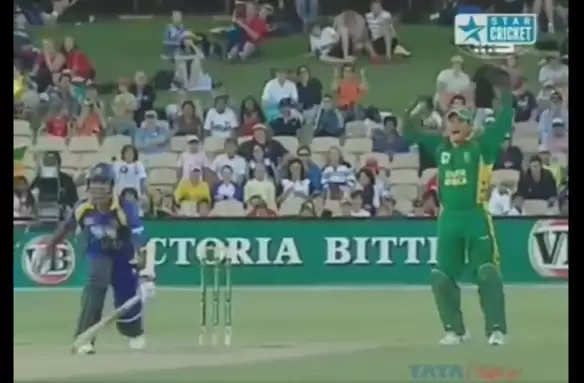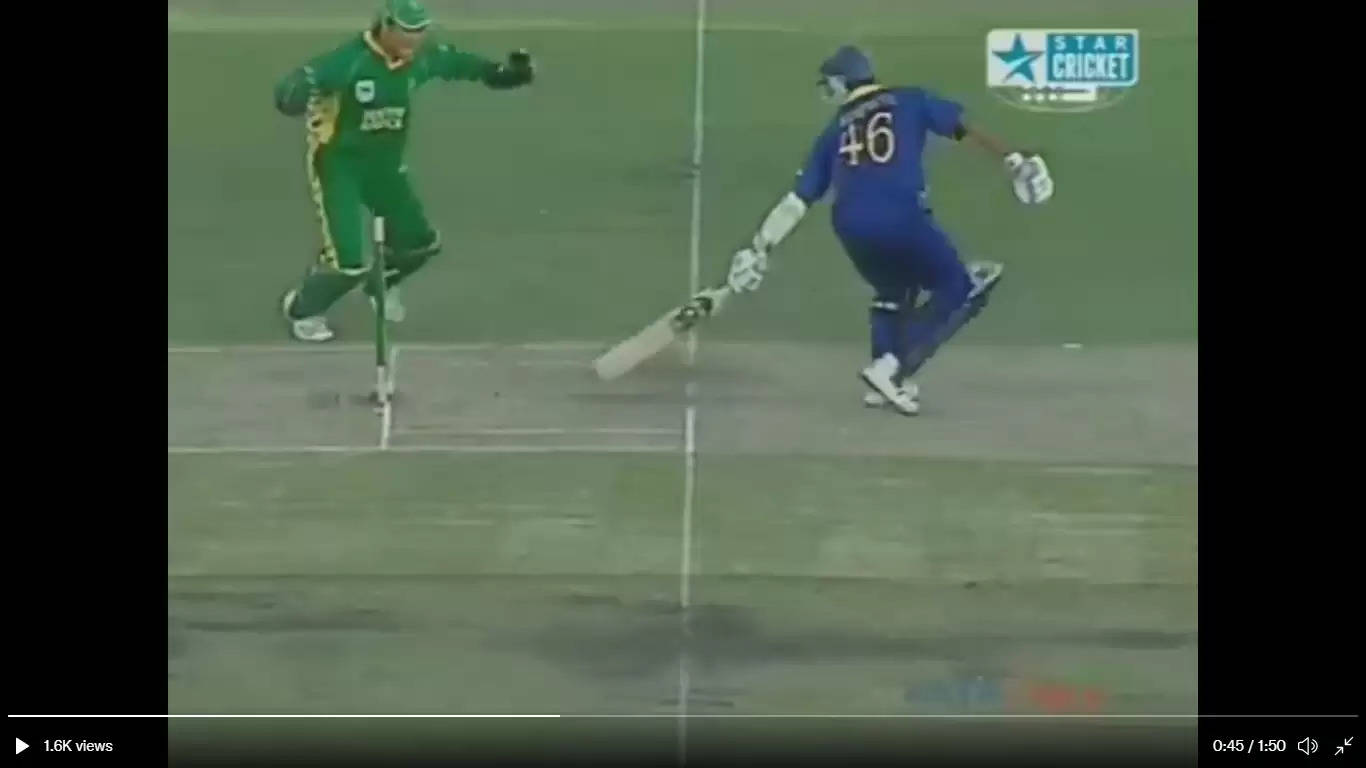Watch: Mark Boucher’s run out from 2006 that would spark a fake fielding debate today

Former South Africa cricketer and the national team’s contemporary head coach, Mark Boucher, is remembered fondly as one of the game’s greatest ever wicketkeeper-batsmen. Boucher was an instrumental figure in Proteas’ most successful Test and ODI outfits in the post-apartheid era.
In a career spanning 15 years from 1997 to 2012, the gutsy right-hand batsman and great gloveman played 147 Tests, 295 ODIs and 25 T20Is for his country.
Boucher’s illustrious career was cut short by an accidental eye injury ahead of the tour of England nearly a decade back, but he bid the game adieu only after having piled on over 10,000 international runs and inflicted nearly 1,000 dismissals behind the stumps.

Fake Fielding: Watch 10 Instances Of Fielders Attempting To Feign The Batsmen

Mark Boucher was involved in a rare run-out during the 2005-06 tri-series in Australia.
When Mark Boucher inflicted a rarely seen run out against Marvan Atapattu
Alongside Aussie legend Adam Gilchrist, Mark Boucher was easily one of the two best wicketkeeper-batsmen of his era, with a sound technique against pacers and spinners, an alert mind and great ability to read the situation and provide crucial inputs to the captain, close-in fieldsmen and of course, the bowlers.
A great example of Boucher’s sharp glovework, amazing agility and awareness was on display during the VB series 2005-06 triangular in Australia. Facing fellow tourists Sri Lanka in a crucial encounter at the Adelaide Oval, South Africa needed a breakthrough in their quest to restrict the opposition below their score of 263/5 and it was Boucher who provided them one with a memorable run-out.
As Sri Lanka captain Marvan Atapattu tried to nudge a sharp off-spinner from Johan Botha, the ball flicked off his pads to loop into the hands of Boucher. Seeing that Botha has gone up in appeal for an LBW, the wicketkeeper quickly joined in without umpire Aleem Dar looking interested.
But just then, something absolute bizarre took place. Atapattu instinctively took a couple of steps outside the batting crease and Boucher, who had one eye on the batter’s feet while he jumped up for the LBW shout, ended up running him out with a side-flick towards the stumps. This was a rare form of dismissal and one could see that Atapattu only later realised his mistake as the TV umpire confirmed the dismissal via the giant screen.
An extraordinary presence of mind & game awareness shown by South African wicket-keeper Mark Boucher when he ran out Sri Lankan captain Marvan Atapattu with a side-flick of the ball, despite appealing for caught-behind at the same time.pic.twitter.com/OYNeh8bgFF
— Cricfinity (@cricfinity) August 21, 2021
Importantly, this was a dismissal from the pre-social media days, where fans didn’t have various platforms to express and establish their opinions and throw in different perspectives over cricket’s on and off-field matters.
In today’s times, Mark Boucher’s excellent piece of glovework to dismiss Atapattu could be a cause of long debates on whether it shall count as fake fielding or not. There could be different interpretations on the matter. With one section probably suggesting that at no stage did Boucher make an attempt to hide the ball in his glove and fool the batter against thinking of a run-out possibility with his LBW shout and the other potentially suggesting that he did.
Over the years, there have been multiple such instances on a cricket field, which would be cheeky for some but are acts of fake fielding for others. The ICC has a law in place for the latter. As per Law 41.5, pertaining to ‘Deliberate distraction, deception or obstruction of batsman’, “it is unfair for any fielder wilfully to attempt, by word or action, to distract, deceive or obstruct either batsman after the striker has received the ball.”
Clause 41.5.2 of the law states, “it is for either one of the umpires to decide whether any distraction, deception or obstruction is wilful or not” and “if either umpire considers that a fielder has caused or attempted to cause such a distraction, deception or obstruction, he/she shall immediately call and signal Dead ball and inform the other umpire of the reason for the call.”

